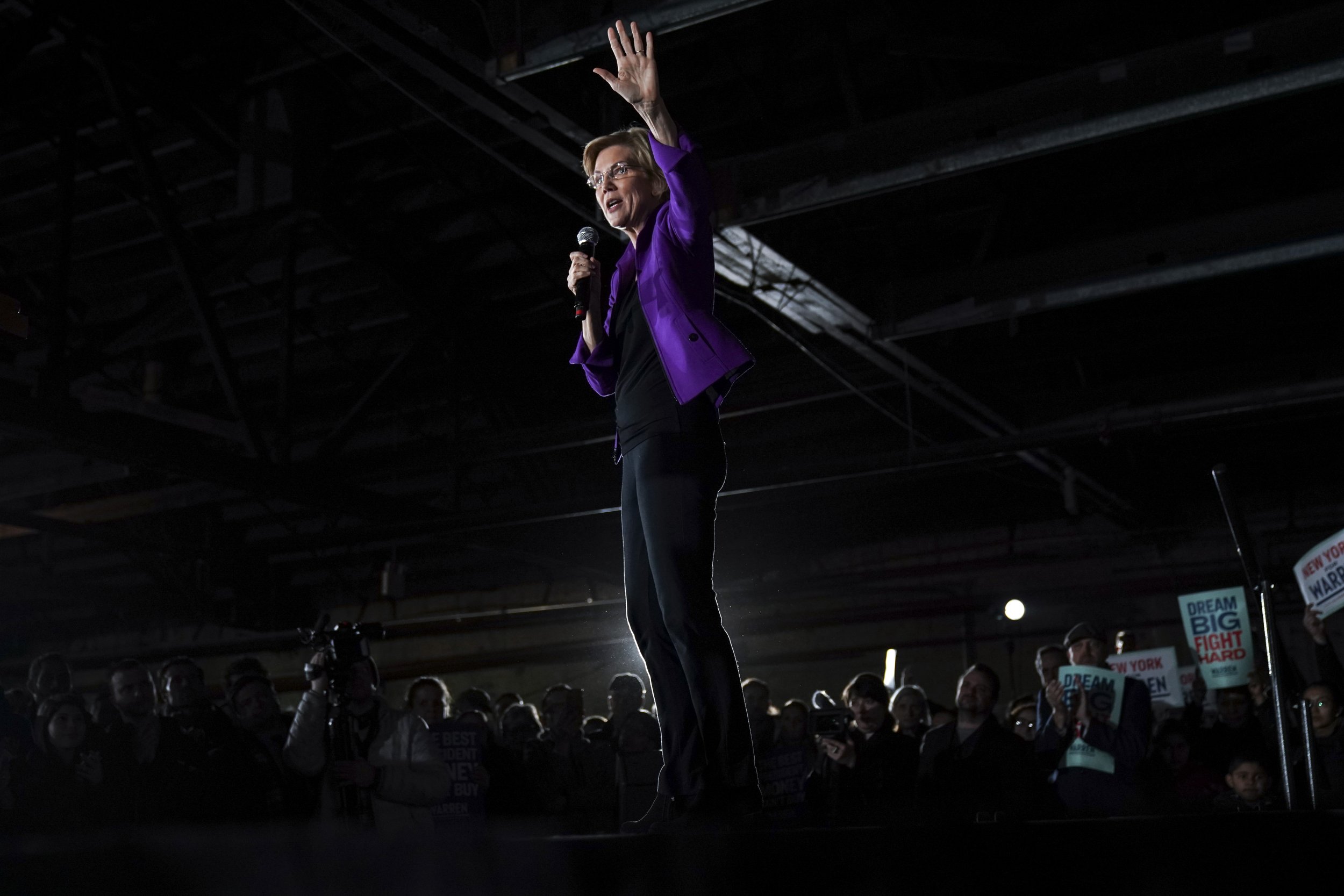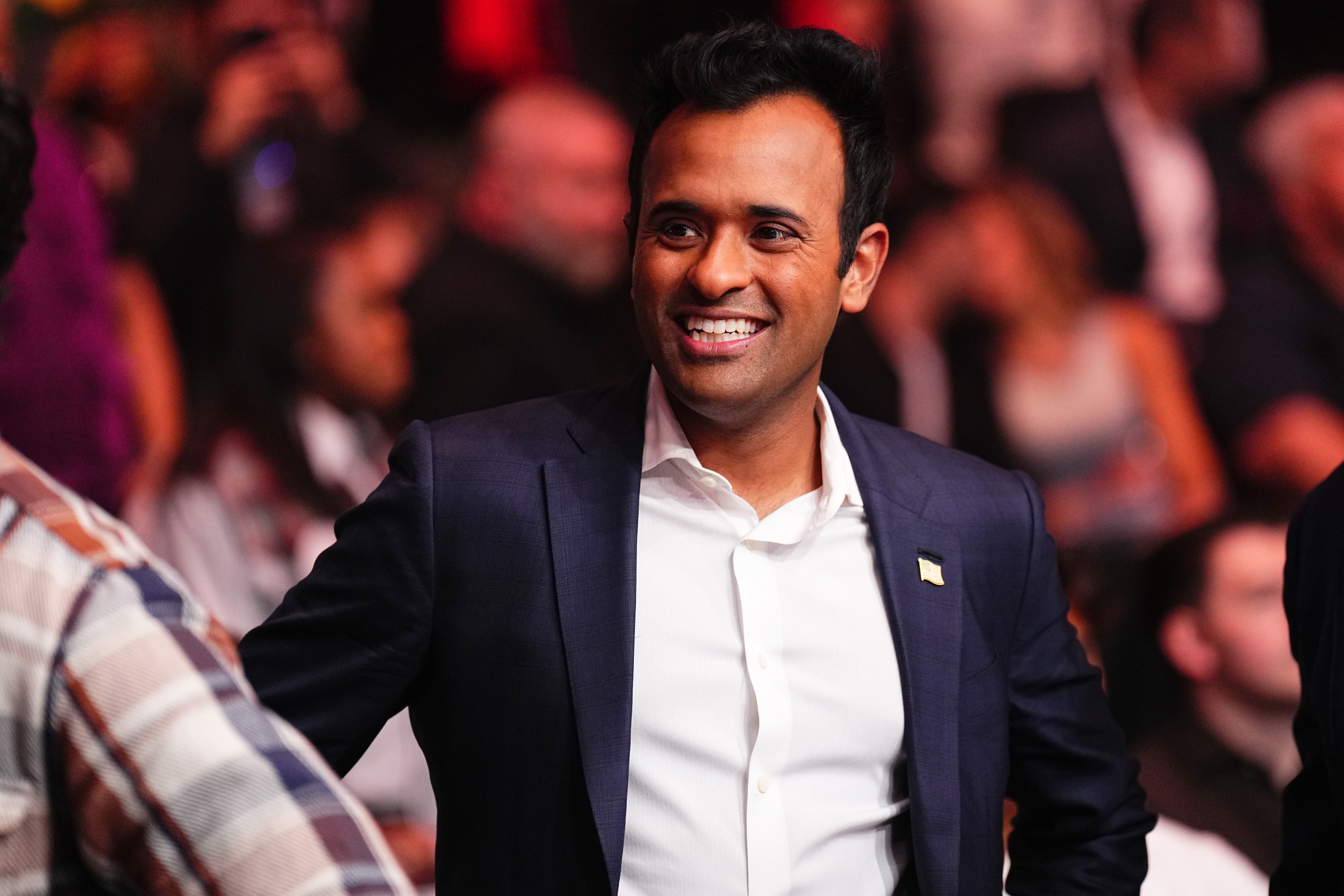
Presidential hopeful Senator Elizabeth Warren announced Friday she wants to bust up giants like Facebook, Google, and Amazon.
America's first Gilded Age began in the late nineteenth century with a raft of innovations—railroads, steel production, oil extraction—but culminated in mammoth trusts run by "robber barons" like JP Morgan, John D. Rockefeller, and William H.("the public be damned") Vanderbilt.
The answer then was to bust up the railroad, oil, and steel monopolies.
We're now in a second Gilded Age—ushered in by semiconductors, software and the internet—which has spawned a handful of hi-tech behemoths and a new set of barons like Facebook's Mark Zuckerberg, Amazon's Jeff Bezos, and Google's Sergey Brin and Larry Page.
The answer now is the same as it was before: Bust up the monopolies.
The current move is bipartisan. At a Senate hearing I testified at last week, arch-conservative Republican Josh Hawley asked me, rhetorically, "Is there really any wonder that there is increased pressure for antitrust enforcement activity, for privacy activity when these companies behave in the way that they do?"
Hawley added, "Every day brings some creepy new revelation about these companies' behaviors. Of course the public is going to want there to be action to defend their rights. It's only natural."
Nearly 90 percentof all internet searches now go through Google. Facebook and Google together account for 58 percent of all digital ads (where most ad money goes these days.)
They're also the first stops for many Americans seeking news (93 percent of Americans receive news online). Amazon is now the first stop for a third of all American consumers seeking to buy anything.
With such size comes the power to stifle innovation. Amazon won't let any business that sells through it to sell any item at a lower price anywhere else. It's even using its control over book sales to give books published by Amazon priority over rival publishers.
Google uses the world's most widely used search engine to promote its own services and Google-generated content over those of competitors. Facebook's purchases of WhatsApp and Instagram killed off two potential competitors.
Contrary to the conventional view of America as a hotbed of entrepreneurship, the rate new job-creating businesses have formed in the United States has been halved since 2004, according to the Census Bureau.
Such size also confers political power to get whatever these companies and their top executives want.
Amazon—the richest corporation in America—paid nothing in federal taxes last year. Meanwhile, it's holding an auction to extort billions from states and cities eager to have its second headquarters.
It also forced Seattle, it's home headquarters, to back down on a plan to tax big corporations like itself to pay for homeless shelters for a growing population that can't afford the sky-high rents caused in part by Amazon.
Facebook withheld evidence of Russian activity on its platform far longer than previously disclosed. When the news came to light, it employed a political opposition research firm to discredit critics.
Facebook's Mark Zuckerberg, who holds the world's speed record for falling from one of the most admired to the most reviled people on the planet, just unveiled a plan to "encrypt" personal information from all his platforms.
The new plan is likely to give Facebook even more comprehensive data about everyone. If you believe it will better guard privacy, you don't remember Zuckerberg's last seven promises to protect privacy.
Google forced the New America Foundation, an influential think tank it had helped fund, to fire researchers who were urging antitrust officials to take on Google.
And it's been quietly financed hundreds of university professors to write research papers justifying Google's market dominance.
What to do? Some argue the tech mammoths should be regulated like utilities or common carriers, but this would put government into the impossible position of policing content and overseeing new products and services.
A better alternative is to break them up. That way, information would be distributed through a large number of independent channels without a centralized platform giving all content apparent legitimacy and extraordinary reach. And more startups could flourish.
Like the robber barons of the first Gilded Age, those of the second have amassed fortunes that gave them unparalleled influence over politicians and the economy.
The combined wealth of Zuckerberg ($62.3 billion,) Bezos ($131 billion,) Brin ($49.8 billion,) and Page ($50.8 billion) is larger than the combined wealth of the bottom half of the American population.
A wealth tax (also proposed by Warren) would help.
Some of the robber barons of the first Gilded Age were generous philanthropists, as are today's. That didn't excuse the damage they did to America.
Monopolies aren't good for anyone except for the monopolists. In this new Gilded Age, we need to respond to them as forcefully as we did the first time around. Warren's ideas are a good start.
Robert Reich is the chancellor's professor of public policy at the University of California, Berkeley, and a senior fellow at the Blum Center for Developing Economies. He served as secretary of labor in the Clinton administration, and Time magazine named him one of the 10 most effective Cabinet secretaries of the 20th century. He has written 14 books, including the best-sellers Aftershock, The Work of Nations and Beyond Outrage and, most recently, Saving Capitalism. He is also a founding editor of The American Prospect magazine, chairman of Common Cause, a member of the American Academy of Arts and Sciences and co-creator of the award-winning documentary Inequality for All. His latest documentary, Saving Capitalism, is streaming on Netflix. Reich 's new book, The Common Good, is available now.
The views expressed in this article are the author's own.
Uncommon Knowledge
Newsweek is committed to challenging conventional wisdom and finding connections in the search for common ground.
Newsweek is committed to challenging conventional wisdom and finding connections in the search for common ground.
About the writer
To read how Newsweek uses AI as a newsroom tool, Click here.








